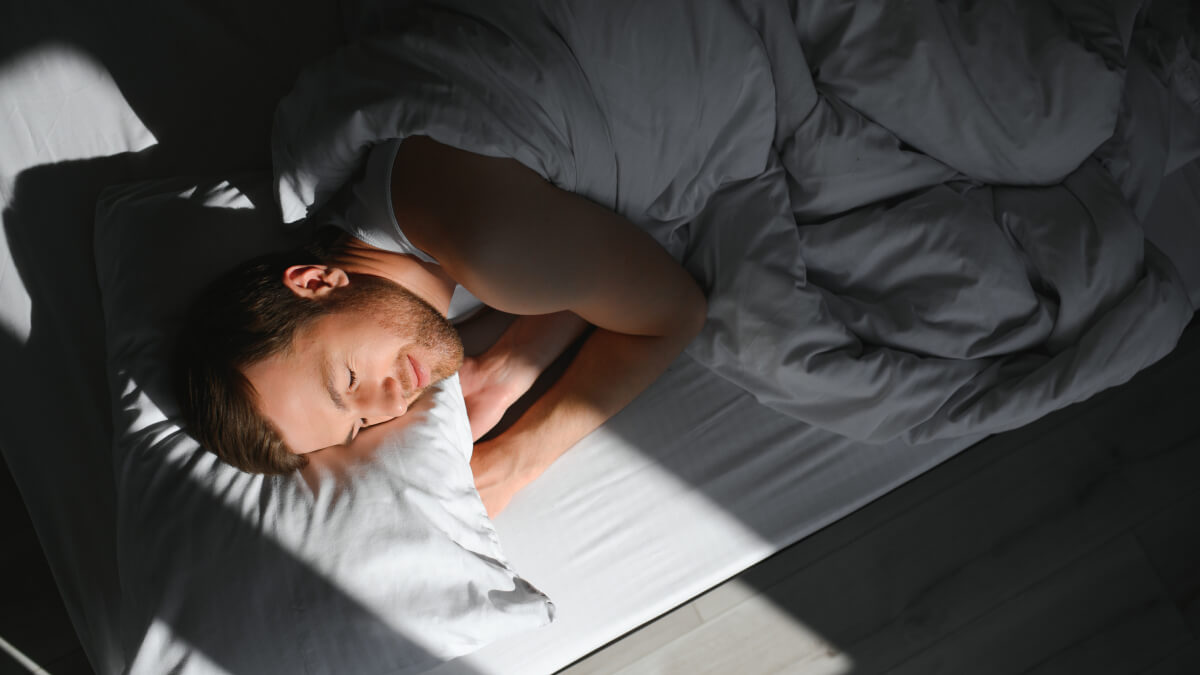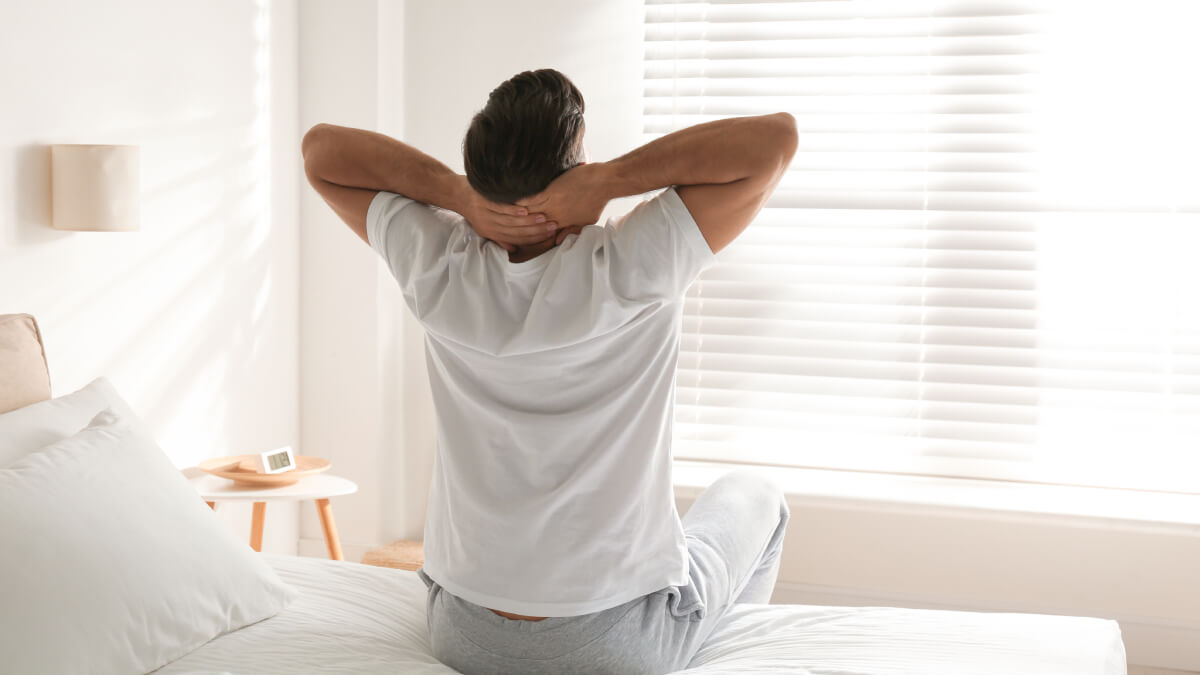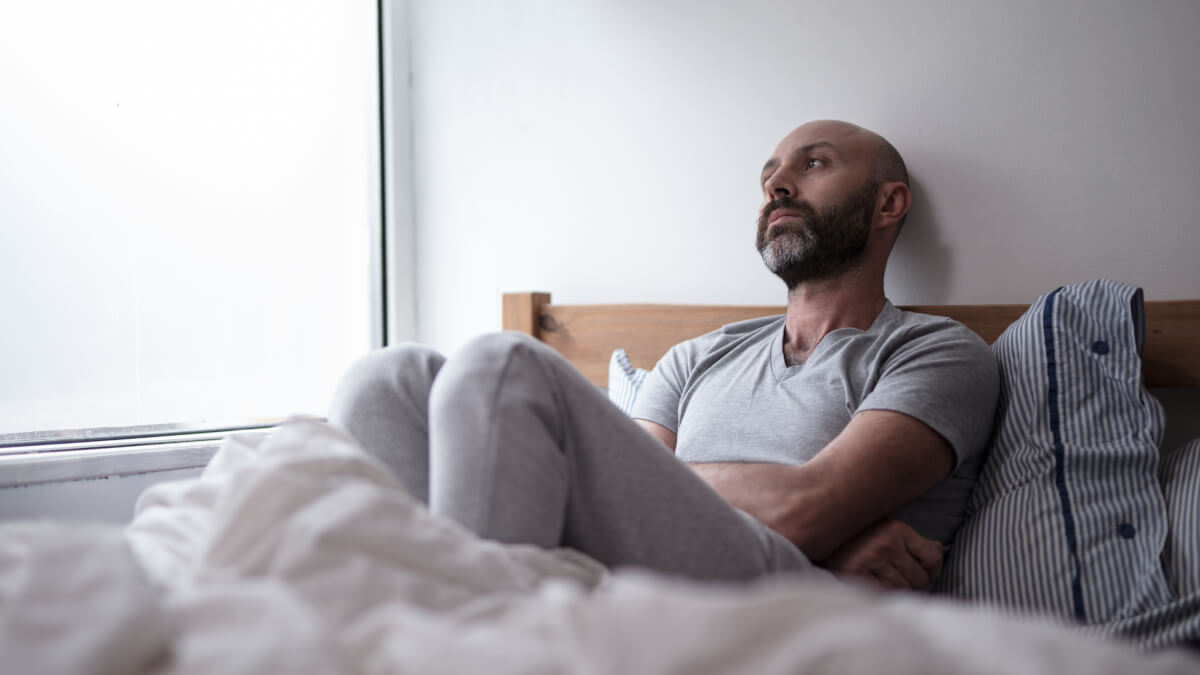Sleep is among the most powerful influences on our physical and mental health, yet it’s so often the pillar of our lives we’re quickest to neglect. In fact, sleep deprivation is the highest it’s ever been. In the UK, adults average just 6.8 hours of sleep each night, over an hour less than the recommended amount. From lifestyle changes to technological developments, there are many things to blame for this global reduction in sleep and many are even left questioning: ‘Why do we need sleep so badly?”. So, in this article, we’ll explain the importance of sleep and walk you through our top tips for sleeping better. Whether you struggle getting to bed in the first place or falling asleep once you’re there, keep reading for science-backed advice for improving the quality and duration of your sleep.
Understanding Mental Health: Why Do We Need Sleep?
For many, the recommended 8 hours of sleep sounds like a dream because the demands of life make it so difficult to achieve. Whether you’re caught up at work or too engrossed in your favourite TV series, it’s easy to push back bedtime and deal with a little tiredness the next day. However, new research has revealed just how detrimental this practice can be and how transformative good sleeping habits are for your overall health.
- What Are The Benefits Of Sleep?
- What Are The Types Of Sleep?
- What Is The Link Between Sleep And Mental Health?
- Tips For A Better Nights Sleep

What Are The Benefits Of Sleep?
From a young age, we’re taught how much we need sleep to fuel us for the next day. But it’s only recently that sleep scientists have begun to grasp the full extent of its influence on all aspects of our lives. Advancements in technology allow researchers to monitor the movement of energy in the brain, even when we’re asleep, and the findings are staggering. There are very few elements of human health that are unimpacted by a lack of sleep. These are just a few of the ways sleep can help improve your health:
Improved Mental Health
Poor sleep lessens your ability to regulate your emotions and interact socially. You may have noticed that you have a harder time controlling emotional outbursts when you’re tired. That’s because your pre-frontal cortex, the part of your brain responsible for self-control and decision-making, relies on adequate sleep to function at its best. Additionally, a number of mental health concerns, including depression and anxiety, are linked to poor sleep quality. That’s why those suffering from sleeping disorders like insomnia report higher rates of depression than those without.
Stronger Heart And Immune System
Studies have shown that those who sleep less than 7 hours each night increase their risk of heart disease by 13%. This increased risk is present in a range of conditions, from diabetes to the common cold. Lack of sleep has been found to dramatically increase blood pressure and impair the immune system, making people more susceptible to a wide range of issues.
Makes Losing Weight Easier
It’s no coincidence that the global average BMI and sleep deprivation have both been on a steady increase over the last century- the two are closely linked. Sleep is responsible for regulating the hormones that affect hunger and appetite, meaning a tired mind is more likely to crave food when your body doesn’t want or need it. Additionally, poor sleep lowers your metabolism, making it difficult to burn calories and increasing your risk of obesity.

What Are The Types Of Sleep?
There are two types of sleep: rapid eye movement (REM) sleep and non-REM (NREM) sleep. They both serve different purposes, and your brain behaves very differently during each stage. There is 1 stage of REM sleep, but NREM can be broken down into 3 different stages. Once your brain has gone through each stage, it has completed a sleep cycle. One cycle lasts around 90-120 minutes, and most people go through 4-5 cycles per night (assuming they get a full 8 hours of sleep).
NREM Sleep
The first stage of NREM sleep is the lightest stage of sleep. This starts as soon as you fall asleep and usually only lasts a few minutes. During the second stage, your brain waves slow down and release short, powerful bursts of energy. It is believed this is when your brain organises memory and information from the day. Stage 2 accounts for around 45% of the time you’re asleep. The third stage is the deepest level of sleep and makes up 25% of your total time asleep. During this time, your brain releases slow but strong brain waves to repair injuries and reinforce your immune system. Stage 3 NREM is essential to feel rested when you wake up.
REM Sleep
Most dreams happen during REM sleep. Its name comes from the rapid movement of your eyes beneath your eyelids while you dream. During this stage, your brain activity looks very similar to how it would when you’re awake. Making up the final 25% of the time you spend asleep, REM sleep is essential for memory consolidation, emotional processing, and brain development.

What Is The Link Between Sleep And Mental Health?
Your sleep and mental health are intrinsically linked, each playing a significant role in the other. Traditionally, it was thought that sleep disorders were a symptom of poor mental health. However, it has recently become clear this is a bidirectional relationship where sleep disorders can be a cause and consequence of mental health issues. This becomes evident when looking at how sleep is tied to specific mental health conditions:
Depression
Around 75% of those suffering from depression also show symptoms of insomnia. Additionally, many people with depression also suffer from a form of hypersomnia (sleeping too much). That is why it has long been thought sleeping problems were a consequence of depression. However, there is growing evidence to suggest poor sleep may induce or worsen depression. This has given rise to new types of depression treatment, in which the focus is on improving sleep quality.
Anxiety
Anxiety is strongly associated with sleeping problems, as worry, fear, and stress are not conducive to good quality sleep. In turn, these sleep problems may become an added source of worry, worsening the issue. Research has found a particularly strong link between PTSD and sleep, as sufferers will replay negative events in their minds and suffer from nightmares, interfering with their sleep.
Bipolar Disorder
The sleep patterns of those with bipolar disorder can change considerably depending on their emotional state. During periods of mania, they might not feel a need to sleep, whereas sleep might become excessive in periods of depression. There is also evidence to suggest poor quality sleep can worsen the effects of manic or depressive periods.
ADHD
Often, those with ADHD have difficulty falling asleep and will wake up frequently throughout the night. Once again, there is evidence of a bi-directional relationship where sleep problems may aggravate ADHD symptoms.

Tips For A Better Night’s Sleep
The importance of a good night’s sleep is more evident than ever. However, achieving quality sleep is much more difficult than it appears. With so many distractions today, it’s become increasingly challenging to prioritise sleep and maximise its benefits. So, we’ve compiled our top tips to reclaim your sleep and put your mental health first:
- Set And Stick To A Schedule: Start by waking up at the same time every day, even when you’ve got time for a lie-in. While it might sound counter-intuitive, a routine like this will help your mind and body become accustomed to sleep and wake times.
- Introduce A Bedtime Routine: Develop a set of actions you can go through every night to train your brain that sleep is coming. Try to make the actions calming and conducive to sleep.
- Avoid Bright Lights And Electronics: The light from your devices has been found to disrupt your body’s natural sleep-wake functions. So, try to avoid your devices as much as you can in the build-up to bedtime.
- Limit Food And Drink Intake: Eating large amounts of food too close to bedtime can disrupt your sleep because your stomach is still busy digesting it. It’s also best to avoid drinking too much of any beverage before bed because you’ll likely need the toilet throughout the night, decreasing sleep quality.
- Increase Physical Activity: By staying active during the day, you can prepare your body for rest and improve the quality of your sleep. Even simple exercise like going for a walk will help.
- Limit Your Bedroom To Bedroom Activities: Your brain picks up on the subtle cues of your surroundings, so try to use your bedroom for bedroom activities like sleeping, intimacy, and sex.
- Avoid Alcohol: Try to limit how often you drink alcohol before bed as it impacts the melatonin in your brain and hugely reduces the quality of your sleep.
- Don’t Rely On Sleeping Medications: The long-term use of sleeping pills and other medications can have a negative impact on your sleep. The only sleep-related medications you should use are those prescribed to you by a medical professional.
- Speak To A Professional: If you’ve been struggling with your sleep for a while and it’s starting to have a detrimental impact on other areas of your life, try contacting a sleep expert. They’ll help you understand what it is that’s limiting your sleep and work with you to develop a way to overcome it.
Time For Bed!
Sleep is one of the three pillars of our health for a reason, and its importance is only growing the more we learn about it. So, if you’re looking to improve your mental and physical health, addressing your sleep is one of the best places to start. Boosting your sleep quality and duration can be a lengthy process, so don’t put pressure on yourself to nail it right away. For more information regarding your mental health, explore the range of topics on the LADZ app.





